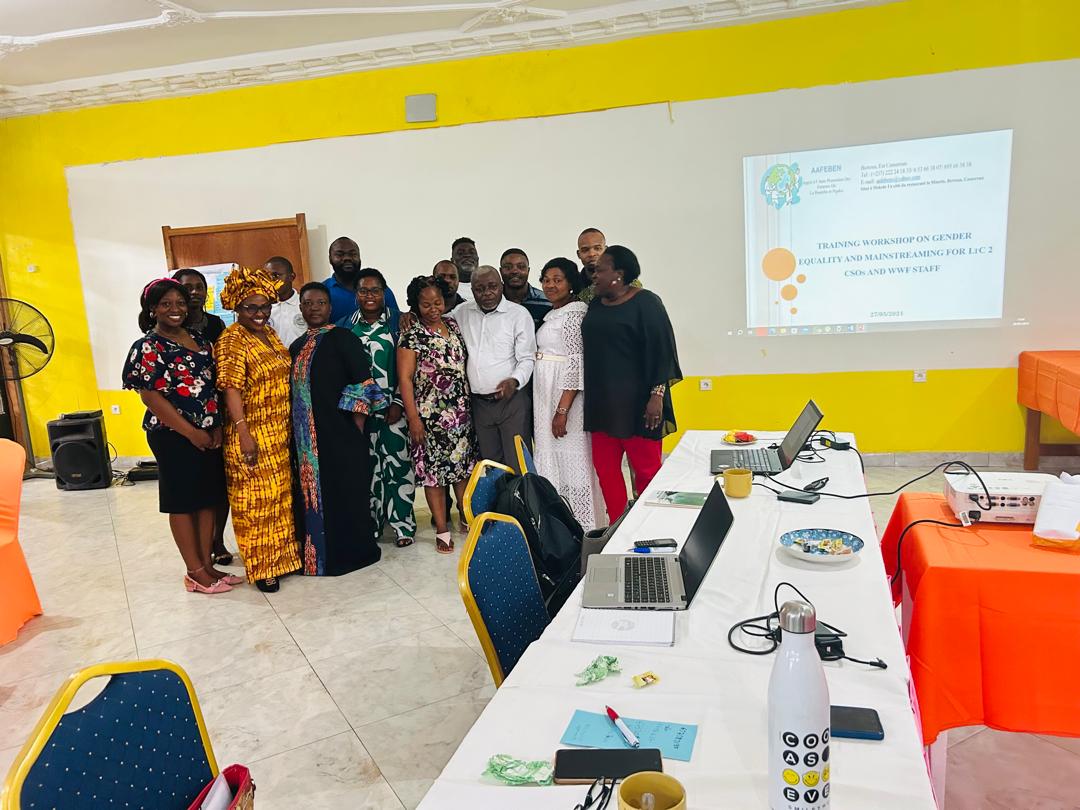Leading the change (LtC): Civil Society, Rights and Environment (En)

AAFEBEN is part of a consortium of CSOs implementing activities within the framework of this project.
Objective: Local communities and indigenous people in Cameroon are effectively exercising their rights, controlling decisions and equitably receiving benefits from natural resources, and contributing to the sustainable management of terrestrial ecosystems. To achieve the overall objective, the following results were obtained by AAFEBEN;
Results obtained:
- Three Women's cooperatives working in the collection, processing, and marketing of non-timber forest products (NTFPs) were strengthened technically, organizationally, materially, and commercially, as well as with working capital support.
- Increased valorization of processed NTFPs through the production of djanssang oil (Ricinodendron heudelotii), butter, cakes and wild mango powder (Irvingia gabonensis), Moabi oil (Baillonella toxisperma) by the cooperatives.
- Nearly 14,240,080 FCFA generated by the three cooperatives for a profit of nearly 1,971,430 FCFA for the marketing of unprocessed NTFPs. A revenue of nearly 3,233,000 FCFA generated for a profit of nearly 1,589,350 FCFA for the marketing of processed NTFPs.
- Support in setting up a women's enterprise that produces cosmetic products based on processed NTFPs. More than 589 bottles of toilet milk, 399 boxes of hair cream, 553 bottles of gels and 112 bottles of shampoo produced for more than 500,000 FCFA of revenue already generated.
- AAFEBEN engaged in talks with the R-PALLISCO forestry concession which helped to guarantee access for Indigenous Peoples and Local Communities (IPLCs) in its UFAs for the collection and marketing of NTFPs over an area of 441,869 hectares. This allowed more than 190 households to collect more than 18 tons of NTFPs (wild mango, djanssang, moabi, mbalaka etc).
- Nearly 750 households benefit from the economic spin-offs of the collection and marketing of NTFPs in 20 communities in the TNS and TRIDOM landscapes. More than 298,494,696 FCFA generated by these households.
- Baka households were strengthened and accompanied in such a way that they collect less and less NTFPs for the Bantu but rather for themselves and manage to generate much more money.
Funded by Swedish International Development Agency through WWF Sweden and WWF Cameroon.